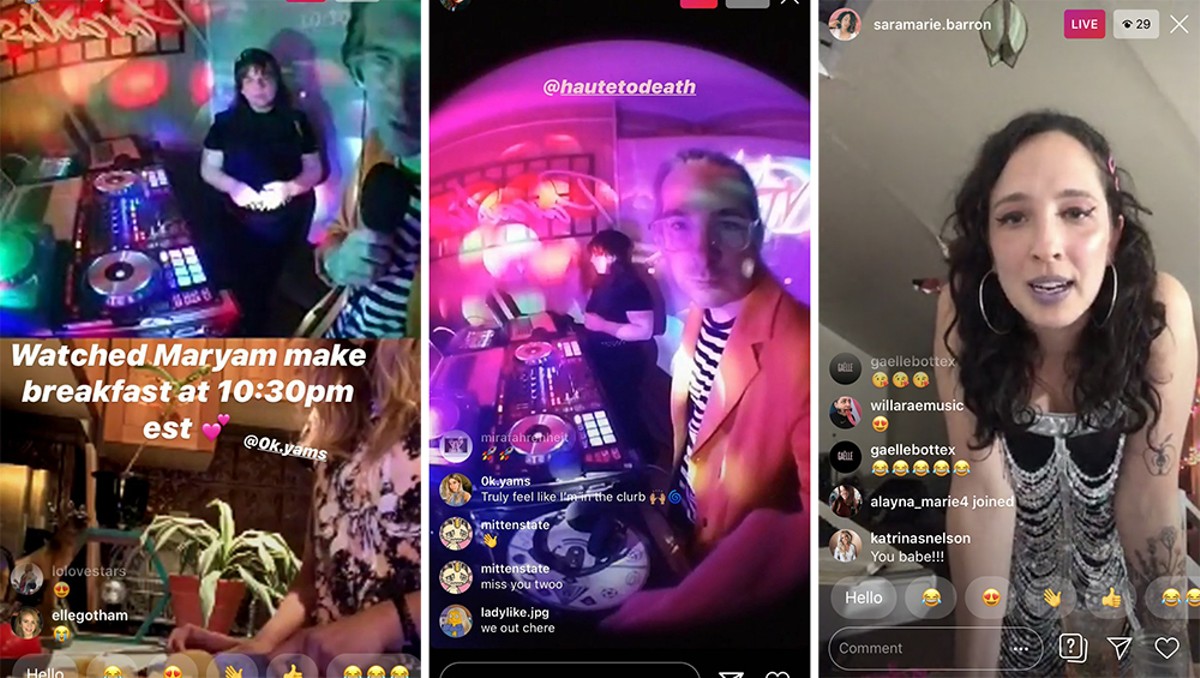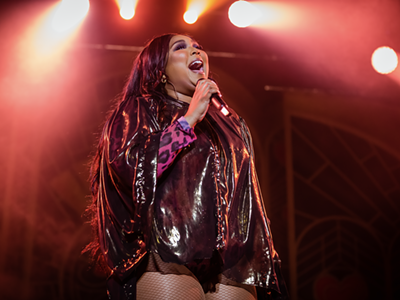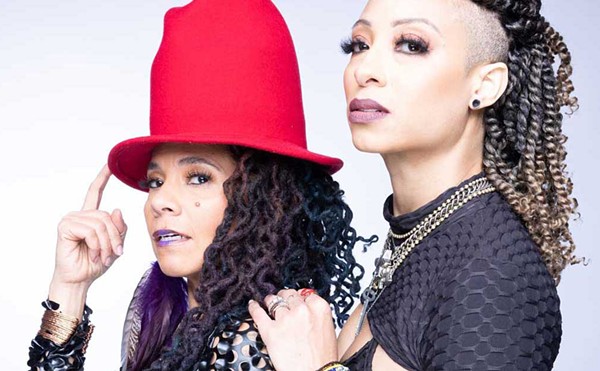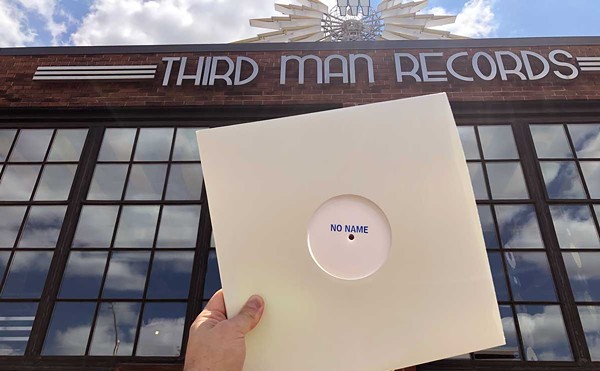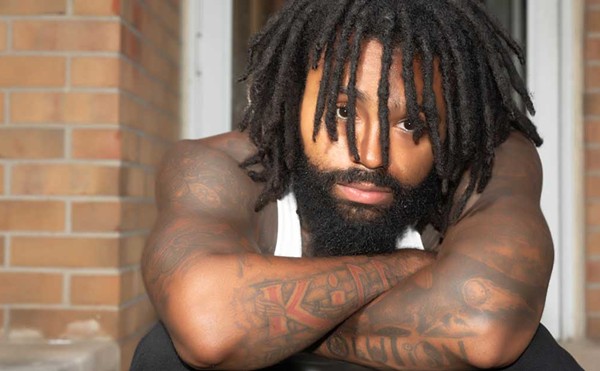The term FOMO — or fear of missing out — is alleged to have originated in 2000, when marketing strategist Dan Herman wrote a paper on the phenomenon. The term would take a few years to catch on, finding legs on the campus of Harvard Business School in 2004. It wasn't until 2007 that Businessweek declared FOMO an epidemic in the social-media age, after which point outlets began suggesting that FOMO wasn't merely a buzzword or cultural phenomenon but was shaping up to be the biggest epidemic millennials would likely face in their lifetimes.
Fast-forward to March 2020, when millennials and, well, just about everyone in the world began accepting a reality in which the idea of FOMO has been virtually extinguished. The COVID-19 coronavirus pandemic has indefinitely pressed pause on everything that would normally entice feelings of envy or lusting, key ingredients in the FOMO equation. Big festivals like SXSW, Coachella, Ultra Music Festival, Shaky Knees, Bonnaroo, Glastonbury, and Detroit's own Memorial Day electronic music tradition, Movement, were canceled or postponed. Concert promoter giants Live Nation and AEG suspended all tours, even the sold-out runs by megastars like Billie Eilish, followed by mid-level venues and local coffeehouses and bars. In the current climate, people are just longing for leisurely trips to the grocery store, where they're guaranteed to find basic essentials like toilet paper, happy hour with coworkers, brunching with friends, or simply hugging a loved one. In the time of coronavirus, there is nothing to miss out on, only to miss.
Metro Detroit performers, DJs, and businesses are missing out, however, on opportunities — not only because they're a financial lifesource but also because they're emotional and deeply personal, too.
Many are using their social-media platforms to do exactly what metro Detroit singer-songwriter and Metro Times contributor Sara Barron sought to achieve when she embarked on a recent livestream performance from her attic: connection.
"It gives me something to look forward to, and an excuse to dress up and try new things," she says. "When I'm playing or performing, I feel totally consumed by the moment, which is a nice escape from the constant anxiety I, and most of us, [are] feeling."
Barron performed her first quarantined show the weekend before Gov. Gretchen Whitmer announced a three-week stay-at-home order for Michigan residents and the closure of non-essential businesses. During the stream, which she did using Instagram's Live feature and Zoom's video conference calls, Barron's grandmother Mimi made a surprise appearance when she couldn't quite navigate Zoom's mute feature.
"I see mute. Now I just have to get to it," Mimi said mid-stream. Barron's dad and nephew, who are among family quarantined in Petoskey, also virtually attended her show.
"It was so sweet," Barron says. "Even a bunch of my relatives in Toronto tuned in, and it made me feel really ... loved in this period of isolation."
Following the stream, Barron launched Silk Motel, a call-in livestream series that allows callers to gossip or rant and welcomes special guests like Detroit singer-songwriter Willa Rae.
Nationally, most mainstream formats of entertainment have shifted the way they operate. Late-night TV show hosts like Conan O'Brien and Trevor Noah are continuing some version of their shows, filmed in the comfort of their own homes. Piano crooner and EGOT John Legend performed an intimate at-home concert for his viewers (complete with wine-guzzling wifey, Chrissy Teigen), Rufus Wainwright performs daily "quarantunes" in his bathrobe, Death Cab for Cutie bandleader Ben Gibbard is taking requests from fans for his daily hour-long livestreams (he even covered a comedy track by metro Detroit's own Tim Robinson), and Miley Cyrus has launched Bright Minded, a daily talk show where she interviews wellness experts, workout coaches, and a slew of celeb friends like Paris Hilton, Mark Ronson, Reese Witherspoon, and Ellen DeGeneres.
Old-school greats are quickly becoming tech-savvy, too in the age of coronavirus. Neil Young has been doing wacky fireside concerts, and Patti Smith has used Instagram to read poetry and perform songs with her daughter, Jesse. Jurassic Park actor Sam Neill has started reading poetry to ease anxious folks, and, unexpectedly, he's even whipped out his ukelele to perform Radiohead covers.
The folks behind Audio Assemble, a Detroit-based online resource created to help musicians learn how to use recording software, have extended their reach during the COVID-19 outbreak by curating a livestreamed music festival. The Plugged In festival, which takes place on audioassemble.com/plugged-in starting at 6:30 p.m. on April 8-10, will pay each of its selected artist submissions $200 for a live 20-30 minute set, with opportunities to earn more money through a viewer voting process. The organization has launched a GoFundMe campaign to raise the $7,200 needed to compensate the participating musicians.
"We saw funds were being overwhelmed so we decided to start our own fund while also offering a platform for musicians to showcase their music live," the campaign statement reads. "We created a resource compiling multiple funds, remote job opportunities, and long term employment ideas. We received a large response and we knew we needed to do more."
Here in Detroit, musicians aren't the only ones flipping their practice or their business model on their heads. Fitness studios like Detroit Yoga Lab and PoleFit Revolution are offering online classes to make up for in-person instructionals. Ascension Healing Arts Center in Southfield is offering divination workshops and meditations. The criminal defense lawyers at Zupac Law double as yoga and meditation instructors, and are also offering virtual drum-led meditation journeys and other interactive practices. Hairstylists like Rebekah Tann, who works out of Village Parlor, are finding workarounds to a service that relies on in-person contact by offering personal bang-trimming tutorials for donation.
‘There is a new kind of connectedness happening, and I think it’s helpful for others to feel more connected to the outside world as well.’
tweet this
Movie theaters have also been deemed non-essential under Whitmer's order, which has forced art-house theaters like Cinema Detroit, Hamtramck's Film Lab, and Ann Arbor's Michigan and State theaters to find new ways to offer their programming to the community through virtual screenings. Similarly, local comedy clubs like Planet Ant have been scrappily putting together live feeds and call-in versions of their podcasts. Stand up comedians, who, like musicians, are out of the game due to venue closures, are doing their thing on social media. As part of a fundraising effort for its staff, Detroit's Willis Show Bar has launched its "Willis at Home" series on Friday nights. The one-hour show features cocktail tutorials of the club's signature drinks, as well as live performances from the Willis' rotation of bands and singers.
Minihorse's Ben Collins did a livestream concert from his home studio as part of a virtual showcase hosted by his band's label, as did folk mainstay and Detroit House of Music founder Audra Kubat, who launched an interactive Facebook stream inspired by her pre-K teaching, filling in lyrics with words suggested by viewers to encourage participation in the comments. Local acts like Emily Rose, Ryan Dillaha, Jennifer Westwood and the Handsome Devils, and Apropos have done live sets, too. The demon rockers of Lucid Furs and Space Skull also teamed up for a Facebook live show.
DJs are finding solace in livestreaming, too. Breezee Gonzales, a singer, DJ, and karaoke host, has been throwing virtual dance parties on Facebook, many times with her baby safely strapped to her chest, while other streams feature her other daughter Lenny, who joyfully has no filter and a wild imagination that will have you cry-laughing as she turns the dials on her parents' decks.
"I've found that playing records live on Facebook has been really therapeutic for me," Gonzales says. "It's a chance for me to cheer up, get energized, and possibly put my baby to sleep while listening to good tunes. There is only so much we can do from our homes, but I love that people are tuning in. There is a new kind of connectedness happening, and I think it's helpful for others to feel more connected to the outside world, as well."
In addition to the records and live karaoke requests, Gonzales is also giving out her phone number for anyone who might need to vent or chat. What started out as a fun public service among friends has become a method of healing for Gonzales during a time that offers little peace or certainty for her family.
"I started putting my number up for folks to call for really any reason," she says. "There are people that are alone during quarantine, everyone is stressed out, and sometimes it's just nice to let it out to someone who will listen. I also love chatting, and it's a break for me, too. There's such a lack of mental-health options for a lot of us, and I just want to be available for anyone who may need a friend."
Some virtual dance parties are even getting shut down by the "Instagram police" — an inconvenient vestige of pre-coronavirus normalcy. Such was the case when Haute to Death party curators (and collaborators in life, love, and the dance floor) Ash Nowak and Jon Dones had the plug pulled on their live feed on Saturday, likely due to copyright issues, Nowak says. Thankfully, the stream went dark at 1:30 a.m., just as bartenders would normally be shouting their last-call warnings, anyway.
"Virtual Insanity" marked Haute to Death's first-ever attempt at a formal livestream, and their first party during the pandemic. Normally, the duo call Marble Bar home for their monthly dance parties, but quickly adjusted their format to try to make the best possible experience for at-home viewers once it was clear that it might be a while before they could move with the masses again. Dones says the transition was a natural one, as he and Nowak had already been looking at how to incorporate video feeds into their sets. They're working out the kinks, but they're both satisfied at how their first attempt turned out.
"One of the things I think that we really love about our party and what I think a lot of other people really love about our parties is that you're always going to go there and, no matter what, you're going to meet a friend, whether it's someone you already knew or someone you met for the first time," Dones said in the days leading up to their virtual party, which included a variety show segment with some guests to replicate the sensation of hanging out with friends.
Dones and Nowak have been throwing disco-drenched dance parties in Detroit for nearly 13 years. A hallmark of the party has been Dones' camera, which he uses to capture the most intimate and memorable parts of the party. Each month, they throw up an online gallery of all the photos just in time to do it all over again.
This time around, they had to get creative. They expanded the stream to Zoom users, so people could see what people were wearing or what their at-home club set-ups looked like.
Dones jokes that next month's gallery will likely just be Zoom screenshots.
"We can't lose ourselves," Nowak says. "It's really easy to be connecting with your friends and suddenly Googling for the eighth time that day, like, 'any good coronavirus news?' because that's what I'm doing. I think people should really get dressed and, like, do their makeup, do their hair, and remember what they like to do. Put some lights on, turn some lights off, put something in the background. Somebody seeing you in the little square that you take up can really brighten somebody's day."
Both Dones and Nowak preach maintaining some semblance of a schedule and agree that it's important that we shift our mentality from trying to trudge through this experience to allowing ourselves to look forward to something, like finishing a book or a home project, or getting glammed up for a virtual dance party.
While she and Dones work out the Instagram kinks, Nowak admits this new way of life comes with a new set of challenges we all have to navigate together.
"If things — knock on wood — loosen up and more businesses are allowed to open and function again, we're really going to be the dead last of that cause we're in the business of throwing events for, like 500 people [that] come through the average party that we do, and it's going to be a long time before 500 people are allowed to hang out together again," Nowak says.
"So while we wait for that, what's important about our 500 people that all hang out, we perform and we do this as an act of catharsis," she says. "We're in a position right now where one of the pains in daily life is not touching each other. Our work is really now so much more vital than ever, and we're literally not allowed to do it. There's so much we don't have control over right now. So the things we do have control over, I think we need to be really diligent in just relishing those things and really enjoying them."
We have a new events newsletter! Find out the best things to do in the area every Thursday morning in your inbox.

